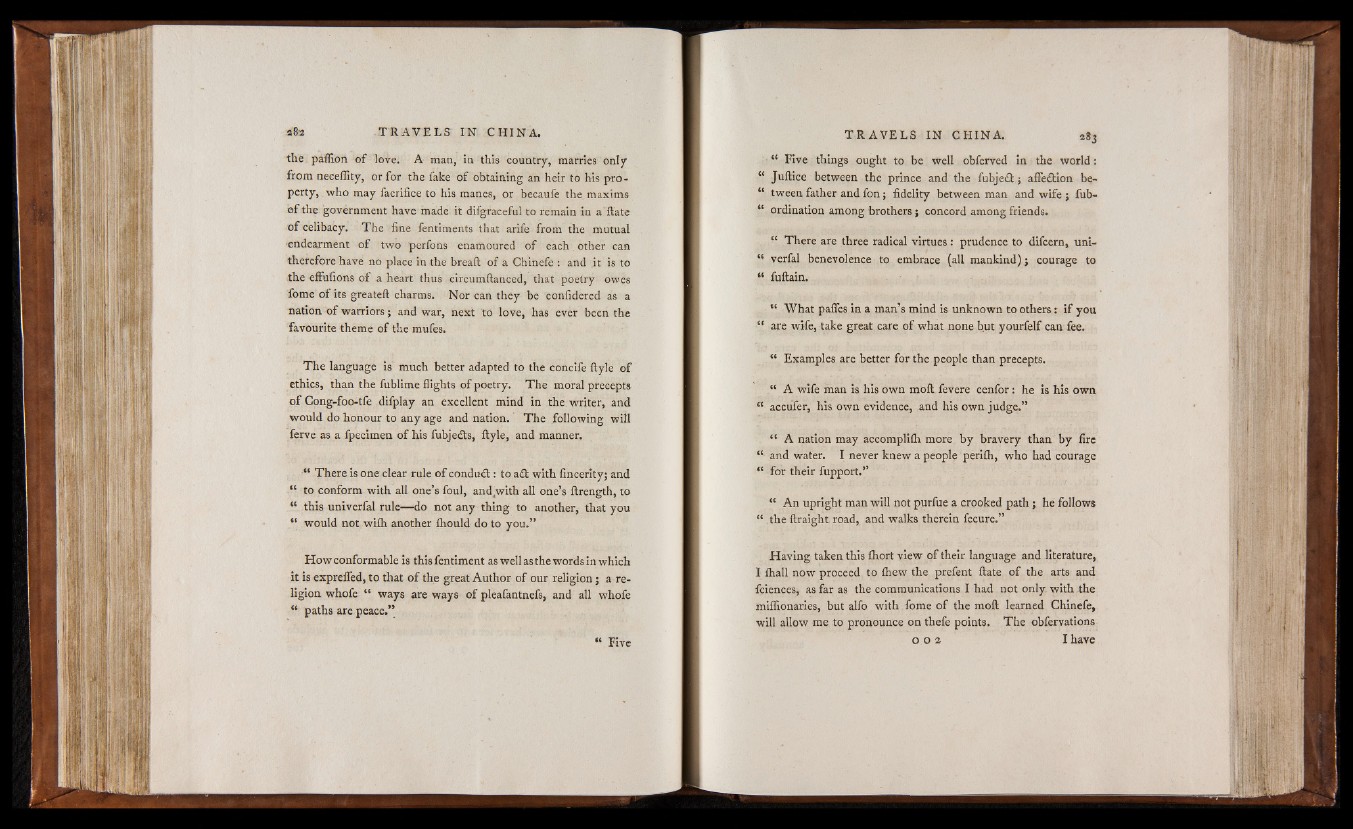
the pafiion o f love. A man, in this country, marries only
from neceflity, or for the fake o f obtaining an heir to his property,
who may facrifice to his manes, or becaufe the maxims
o f the government have made it difgraceful to remain in a Rate
o f celibacy. The fine fentiments that arife from the mutual
■endearment o f two perfons enamoured o f each other can
therefore have no place in the breaft o f a Chinefe : and it is to
the effufions o f a heart thus circumftanced, that poetry owes
fome o f its greateft charms. Nor can they be confidered as a
nation o f warriors; and war, next to love, has ever been the
favourite theme o f the mufes.
The language is much better adapted to the concife ftyle o f
ethics, than the fublime flights o f poetry. The moral precepts
o f Cong-foo-tfe difplay an excellent mind in the writer, and
would do honour to any age and nation. The following will
ferve as a fpecimen o f his fubjedts, ftyle, and manner.
“ There is one clear rule o f con d u it: to a£t with fincerity; and
0 to conform with all one’s foul, andawith all one’s ftrength, to
“ this univerfal rule— do not any thing to another, that you
“ would not with another ihould do to you.”
H ow conformable is thisfentiment as well as the words in which
it is exprefled, to that o f the great Author o f our religion; a religion
whofe “ ways are ways o f pleafantnefs, and all whofe
“ paths are peace.”
I Five
“ Five things ought to be well obferved in the w or ld :
“ Juftice between the prince and the fubjedt; affedtion be-
“ tween father and fo n ; fidelity between man and wife ; fub-
“ ordination among brothers; concord among friends.
“ There are three radical virtues: prudence to difcern, uni-
“ verfal benevolence to embrace (all mankind); courage to
“ fuftain.
“ What paflTes in a man’ s mind is unknown to o thers: i f you
fl are wife, take great care o f what none but yourfelf can fee.
“ Examples are better for the people than precepts.
“ A wife man is his own moft fevere cenfor: he is his own
“ accufer, his own evidence, and his own judge.”
“ A nation may accomplifh more by bravery than b y fire
“ and water. I never knew a people periih, who had courage
“ for their fupport.”
“ An upright man w ill not purfue a crooked path; he follows
“ the ftraight road, and walks therein fecure.”
Having taken this ihort view o f their language and literature,
I ihall now proceed to ihew the prefent ftate o f the arts and
fciences, as far as the communications I had not only, with the
miffionaries, but alfo with fome o f the moft learned Chinefe,
will allow me to pronounce on thefe points. The obfervations
0 0 3 I have